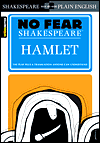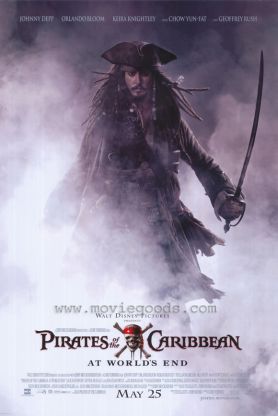Murder Most Foul
From The Wall Street JournalRemember when teachers used to look disapprovingly at you — maybe even failed you — if they found out that you were using Cliff’s Notes to write your essay on “Hamlet”? Well nowadays teachers are among the biggest fans of a cool competitor to Cliff’s called SparkNotes, according to Michael Prichinello, a spokesman for the company.
CliffsNotes, as they now style themselves, are still selling lots of copies, but now they won’t be selling them at Barnes and Noble. The bookseller, which bought SparkNotes in March 2001, is in the process of sweeping the familiar yellow-and-black study guides off its shelves to give a stronger marketing push to its own brand.
SparkNotes is also hoping to gain an advantage over its older rival by a frank appeal to intellectual snobbery. Instead of being written by second-rank academic specialists, the “smarter better faster” SparkNotes are “created by Harvard students.”
“This is not by some guy who got an M.A. from the University of Nebraska,” says Harvard alumnus Justin Kestler, one of the students who started the company in a dorm room at that celebrated institution in 1999. “That’s why they’re so popular with students. They know they’re written by Harvard kids who are really just like them. It’s like having an older brother to help with your algebra.”
Or, at least they are written by kids who have friends at Harvard, since SparkNotes, which started as a purveyor of Web-based study guides, has been growing so rapidly that the original “contributors” have now farmed them out to pals at other institutions. They’ve “moved beyond the Harvard constraint,” as Mr. Kestler says — rather oddly, as that “constraint” is a main selling point.
As is the lack of scholarly credentials among the contributors. “There was a perceived gap of communication between Ph.D.s and ordinary students,” explains Mr. Prichinello.
In fairness, I can’t see much difference, for better or worse, between the guides of Spark and of Cliff that I have compared. And both have similar responses to the charge that their guides are “just cheat sheets.” As the SparkNotes Web site puts it, “reading a SparkNote instead of reading a book is misusing a SparkNote. Those of us who write SparkNotes love the books that we write about, and we want you to read them as well!”
Mind you, they’ll make money whether you do or you don’t. And it’s hard to imagine anyone fired with a desire to read the originals by these plodding “summaries” and “analyses” and listings of “themes,” “symbols” and “motifs.” No doubt there are high-school students who will be thankful to their Harvard big brothers for introducing Chaucer’s Wife of Bath with the helpful hint that “Bath is an English town on the Avon River, not the name of this woman’s husband,” but they’ll be as ignorant as ever about what makes her one of the most memorable characters in English literature.
For that, you’d really have to read the original. I also can’t help thinking that a careful perusal of Mark Twain’s text would reveal what’s wrong with the SparkNotes statement that Huckleberry Finn “is willing to come to his own conclusions about important matters, even if these conclusions contradict society’s norms.” The power of Twain’s irony lies precisely in the fact that it never occurs to Huck to “contradict society’s norms.”
And what of the mind-numbing repetition in the guide to Catcher in the Rye that Holden Caufield “doesn’t know how to deal with adult encounters” or is “unable to deal with the world around him” or has a “cynical view of the world” that “is not grounded in reality”? You can just imagine what Holden would have made of an assessment of his character written by a bunch of self-advertised Harvard students — particularly one so nearly the same as that of the authorities at Pencey Prep.
In my own teenage years, a book like Catcher in the Rye was a much-loved escape for dreamy and poetic youths from the soulless kind of literary studies that not only told you what to read but what to think about it. Now Catcher in the Rye itself has been reduced to a literary “text.” Yet kids don’t seem to mind because they don’t want to read the book anyway. If the success of SparkNotes is anything to go by, they just want a shortcut to comprehension.
The logical conclusion of this process is a guide that simply translates the original into contemporary English that middle-class American teenagers can feel comfortable with. Not coincidentally, the latest SparkNotes project is a series of “No Fear Shakespeare” texts that consist of the original and just such a “translation” on facing pages. Here, for example, is the opening of Hamlet’s most famous soliloquy B la SparkNotes:
The question is: is it better to be alive or dead? Is it nobler to put up with all the nasty things that luck throws your way, or to fight against all those troubles by simply putting an end to them once and for all? Dying, sleeping — that’s all dying is — a sleep that ends all the heartache and shocks that life on earth gives us — that’s an achievement to wish for. To die, to sleep — to sleep, maybe to dream. Ah, but there’s the catch: in death’s sleep who knows what kind of dreams might come, after we’ve shaken off the flesh from our souls. That’s certainly something to worry about . . .
It’s hard to know where to start pointing out the inadequacies. Shakespeare wrote “To be or not to be,” rather than “is it better to be alive or dead” — all words that he could have used — for a reason. But you would never know that from reading SparkNotes. Nor are “nasty things” equivalent to “slings and arrows,” or “earth gives us” to “flesh is heir to.” The meanings of the allegedly equivalent phrases are completely changed by their different metaphorical clothing.
And the translations of “consummation” (a concluding act) as “achievement” and “coil” (a noise, tumult or uproar) as “flesh” are errors, pure and simple. All this without even mentioning the fact that those relying on the guide will have no way of knowing that the lines on the facing page are in verse, or what that means, or that the translation is guilty of multiple inelegances that Shakespeare would never have countenanced.
“That’s certainly something to worry about” too. For what makes literature literature and not a collection of “themes” and “symbols” and more-or-less-readable moral and political treatises is style — not what is said but how it is said. And about this, the “notes” have remarkably little to say. In all of the Canterbury Tales, for instance, the SparkNotes guide can find only three “Important Quotations” for a total of 23 lines, and the “explanations” even of these are confined to explaining the allusions and summarizing the sense.
I don’t know if teachers really are fans of SparkNotes or if that’s just the PR man’s hype. But if these notes do help high-school or college students to get better grades, somebody is grading them very badly indeed.
Discover more from James Bowman
Subscribe to get the latest posts to your email.







